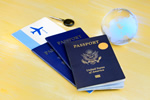Is research the key to a successful emigration?

Is research the key to a successful emigration?
Wherever you’re planning to move, you’ll encounter similar challenges and problems, but some issues are country-specific and need to be taken seriously. Initially, a new environment, a different climate and culture as well as an unfamiliar currency can all result in culture shock, but these and similar changes are relatively easy to assimilate. Common sense in choosing a destination can help the assimilation process, but a good number of websites aimed at potential expats are simply advertorials rather than genuine representations of everyday life in a particular location.
Inflation in the home country gives a strong motivation for setting up home in a cheaper country, especially if warmer weather is a requirement. However, the only way to discover whether the cost of living is actually lower and if so by how much, is to take a vacation in your chosen region and see for yourself. It’s also useful to remember that sensible management of your money, whether as an income or in savings, is the only way to calculate exactly how much you’ll save by moving overseas. Another consideration is the cost of a long-stay visa, citizenship or other means of ensuring your move is permanent, as certain countries charge heavily for the privilege.
For example, the Central American states popular with US expatriate retirees can be very expensive as regards getting residency and even more so for citizenship. Ways round huge costs can involve brown-envelope style corruption, plus the worry that your documents may not be all they seem. A recently introduced programme in many popular locations is the ‘golden visa’ investment guaranteeing legal residency and citizenship, but it’s very expensive and the costs of living in many of the countries offering the service aren’t exactly low. Even if it’s a one-off affordable expense, expats who realise they’ve made the wrong choice won’t have their ‘investment’ returned should they decide to leave.
Making a move to a Southeast Asian country or one of the popular Central American states brings concerns over security and safety, even if you’ve decided to live in a gated community. Political unrest is growing, even in the West, and whilst experienced expats know how to live safely, new arrivals are at risk. In Asia, scams aimed at foreign residents and tourists are common, as is dual pricing and prejudice against incomers. Even if your choice is considered a safe haven, your biggest issue will be learning the local language, especially if you’re a retiree. Another issue is your chosen country’s currency in this unstable world, with unpredictable surges in inflation wrecking even the most carefully structured budget and artificially inflated local currency hitting even harder.
Related Stories:
- Is Kuwaitization the unintended result of the oil price crash? - July 20, 2020
- Expats in Malaysia still banned from overseas travel - July 17, 2020
- HSBC Asia to cut back on internal expat relocations - July 16, 2020
- Tips on integrating for newly-arrived expats - July 15, 2020
Latest News:
- Tips on a trouble-free relocation as an expat overseas - July 20, 2020
- Expats find peace in the covid-19 refuge of Dahab town - July 20, 2020
- Is Kuwaitization the unintended result of the oil price crash? - July 20, 2020
- Expats unhappy abut changes to Korean points-based visa system - July 17, 2020
- Chiang Mai and Bangkok no longer bargain locations for expats - July 17, 2020
- Expats in Malaysia still banned from overseas travel - July 17, 2020
- Vietnam welcomes expats to its safe, affordable lifestyle - July 16, 2020
- Asian tiger economies reach out to expats in Hong Kong - July 16, 2020
- HSBC Asia to cut back on internal expat relocations - July 16, 2020
- Tips on integrating for newly-arrived expats - July 15, 2020


